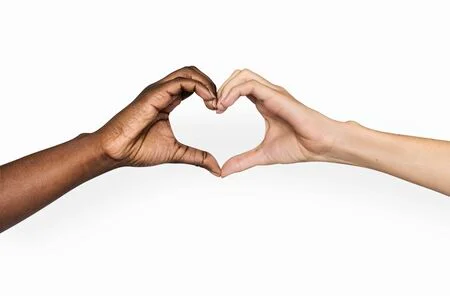
TO love someone is to accept them fully, blemishes and all. We all know this definition of love. Over the years, certain behaviours, rituals, and symbols have become synonymous with this all-encompassing notion of an eternal bond, such as the institution of marriage.
However, such a binary and rigid view of love can cause us to ignore its many gray areas. We can start indulging in behaviour that is to our detriment and allow for behaviour that is obviously problematic.
Mental-health research has proven time and again that love can look and feel different from the way it appears in books, movies, and music. Here are three common mistakes people make when they view their intimate relationships too rigidly.
You are too quick to make sacrifices for your partner Yes, sacrifice is inevitable in most relationships. And yes, it is honourable. But is it always necessary? Research says not really. “It’s certainly honourable to put aside one’s own self-interest because of your partner or your relationship,” explains psychologist Francesca Righetti. “However, our research shows that there is a difficult aftermath for both the giver and the recipient.”
According to Righetti’s research, this is what the aftermath often looks like:
The giver experiences lower well-being, as sacrifices require them to willingly give up their preferences and goals. This makes sacrifice an exceptionally costly prosocial behaviour.
The receiver is left with mixed feelings. On one hand, they feel grateful, loved, and accepted. But they also feel guilty and indebted.
While sacrifice has this effect on both partners in a relationship, women are more likely to experience lower well-being after sacrificing because sacrifices are often viewed as their duty instead of their choice. This means they may especially experience the costs of sacrifice, but few of the benefits.
- Chamisa under fire over US$120K donation
- Mavhunga puts DeMbare into Chibuku quarterfinals
- Pension funds bet on Cabora Bassa oilfields
- Councils defy govt fire tender directive
Keep Reading
To avoid the pain sacrifice can cause in a relationship, Righetti advises partners to follow these two steps:
Change what you focus on. If you focus on what you have lost after a sacrifice, you are more likely to experience lower personal well-being and relationship satisfaction. Try to look at the bright side of the sacrifice (e.g, how happy the partner is or what you/they can learn from this experience, or feeling proud of being a generous person).
You are too lenient in letting things go. Sometimes our loved ones may behave in a manner that is unethical and/or potentially harmful. These situations require us to be completely honest with our partners and ourselves – but it is possible that we fail to do so because we love them.
“When someone close to us behaves unethically, we face a conflict between upholding our moral values and maintaining our relationship,” explains psychologist Rachel Forbes of the University of Toronto in Canada.
Forbes’ research found that people often experience a deep ambivalence when responding to a significant other’s unethical actions — possibly because of people’s tendency to share a sense of identity with their loved ones:
Your relationship is built around utility. We usually choose to be in a long-term relationship with someone if we are in love with the person they are. However, in more cases than we would care to admit, there are other considerations — like the status of the family they belong to, how they can help us achieve our own goals, and financial and material perks.
While considering someone as a resource isn’t completely wrong, it can be a problem when it is the foundation of one’s relationship. Psychologist Xijing Wang refers to this approach as “instrumentality perspective,” which is a dimension of objectification, i.e, viewing a person as an object. Under an instrumentality perspective, people are degraded as pure tools whose function is to facilitate others’ goal achievement. In essence, once we take an instrumental approach, we only care about how useful a person is to us.
If you are feeling that your partner views you from a solely utilitarian perspective, it is important to know that it is not your fault and you should not let it affect your self-esteem. People are driven by goals, and goal achievement can lead to an instrumental approach which could be a default mode in social relationships, including intimate ones.
Initiating an honest conversation with your partner, a loved one, or a mental health practitioner is advisable in such a scenario as it can directly affect your well-being and self-image.
Conclusion Having a partner who sticks with you through thick and thin is a blessing. But you need to constantly check in with yourself and evaluate your relationship honestly to ensure that it does not end up turning into a prison rather than a sanctuary.— psychologytoday.com











